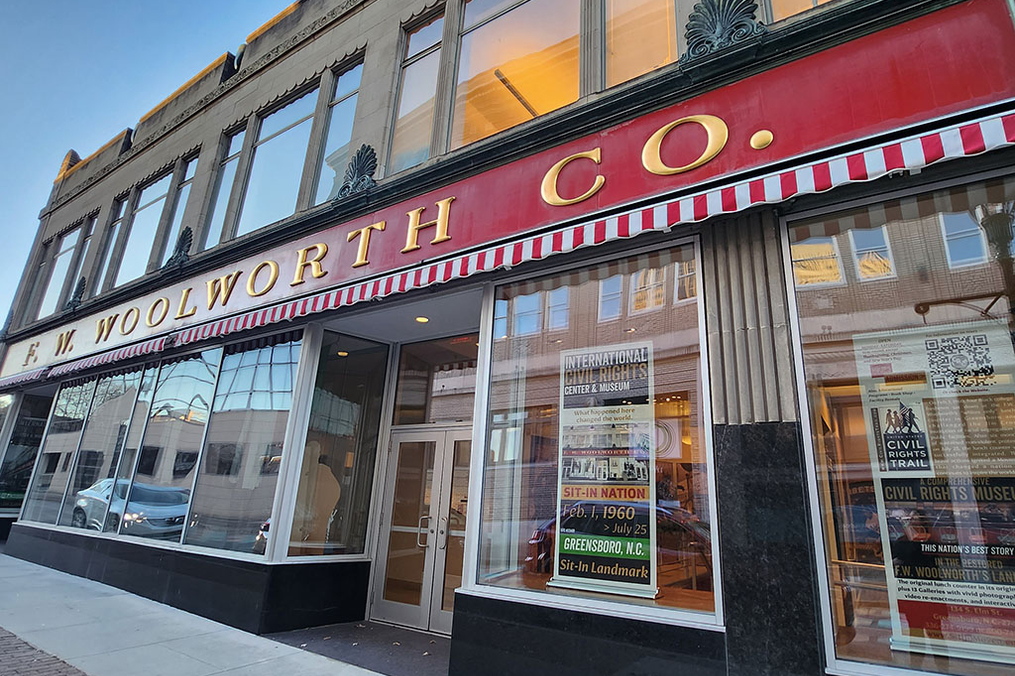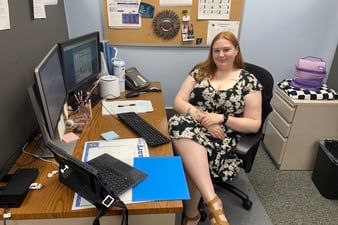On Feb. 1, 1960, four Black first-year students from the North Carolina Agricultural and Technical College walked from campus into downtown Greensboro, N.C., entered the F.W. Woolworth store, sat down at a “whites only” lunch counter, and requested service. They were denied.
The students – Ezell Blair Jr. [Jibreel Khazan], David Richmond, Franklin McCain, and Joseph McNeil, who became known as the “Greensboro Four” – were inspired by the Rev. Dr. Martin Luther King, Jr. Their actions ignited a movement that saw more than 70,000 people joining in sit-ins across the South. This wave of sustained, non-violent protest played a crucial role in the passage of the landmark Civil Rights Act of 1964 – a seminal piece of legislation that mandated desegregation in public accommodations and prohibited discrimination based on race, color, religion, sex, and national origin.
“Not everything that is faced can be changed,” James Baldwin poignantly noted, “but nothing can be changed until it is faced.” As we commemorate Black History Month, I invite the Keuka College community to reflect on the resilience, solidarity, and bravery of these students and countless others who stood firm in the face of systemic racism. Their actions remind us of the power of the collective will to challenge injustice.
From abolitionist Sojourner Truth’s powerful voice to the phenomenal prose of Pulitzer Prize winner Toni Morrison, from Fredrick Douglass’s incisive commentary and activism to Thurgood Marshall’s transformative legal work, African Americans have made—and continue to make—indelible contributions that have shaped the fabric of our nation and humanity.
And they have made their influence felt on the campus of Keuka College over the years. Dr. King spoke on campus during the height of the civil rights movement in 1963. Coretta Scott King was awarded a Doctor of Humane Letters degree and spoke at Keuka College’s 1970 Commencement. Thurgood Marshall visited the College to address civil rights in 1958, when he was chief legal officer of the NAACP. And Former Keuka College Trustee Jean Howard, who helped guide the College from 2008 to 2017, was the sister of Ezell Blair Jr. of the Greensboro Four.
As members of a College dedicated to bringing strength to our nation and help to humanity, I call upon you to dedicate time this month to acknowledging and reflecting on the injustices endured by generations of Black Americans, who courageously protested the enduring legacy of enslavement. Engage with the rich and diverse history of Black Americans. And honor their contributions by participating in events that celebrate cultural diversity, and by exploring works by the marginalized voices of cherished ancestors, both past and present.
(A wealth of online resources are available to guide your exploration, including the Association for the Study of African American Life and History [ASALH], the Smithsonian, the John Henrik Clarke Africana Library, and the Schomberg Center for Research in Black Culture of the New York Public Library.)
Let us observe Black History Month with a spirit of respect and openness, and a deep appreciation for the profound impact Black Americans have had on our society. This month offers us not just an occasion to reflect on a critical part of our collective history, but also an opportunity to commit ourselves to the ongoing work of equity, inclusion, and justice. It’s a time to recognize the strength of diversity and to understand that our shared future is enriched by acknowledging and learning from the past.
By engaging with the stories, struggles, and triumphs of Black Americans, we honor their legacy and contribute to a more inclusive and understanding community at Keuka College and beyond.













